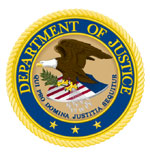|
|
|
Tennessee court rejects Winkler custody case
Court Watch |
2007/09/05 07:32
|
Mary Winkler's efforts to regain custody of her three daughters suffered another blow Tuesday. The Tennessee Supreme Court, in an order issued in Jackson, denied Winkler's request for a hearing on an Appeals Court decision that will not allow her custody petition in juvenile court to proceed. Mary Winkler was convicted in April and sentenced in May on a conviction of voluntary manslaughter in the death of her husband, Matthew Winkler, a Church of Christ minister in Selmer.
After the conviction, Matthew Winkler's parents filed a suit to terminate Mary Winkler's parental rights and to adopt the girls - Patricia, 9, Allie, 7, and Brianna, 2.
Dan and Diane Winkler have cared for the girls since Mary Winkler was arrested in March 2006, after Matthew Winkler's death.
Tennessee law places adoption petitions, which are heard in chancery court, ahead of custody petitions heard in juvenile court. The Court of Appeals decision allowed Dan and Diane Winkler to continue pursuing permanent custody of the girls, and this week's Tennessee Supreme Court ruling lets this decision stand.
The Supreme Court's order further assessed all court costs in the matter to Mary Winkler, who received donated legal services during her murder trial. |
|
|
|
|
|
|
Dana agrees to settle with retiree committee: law firm
Legal Careers News |
2007/09/05 06:37
|
| Law firm Stahl Cowen Crowley LLC, counsel to Dana Corp's retiree committee, said the autoparts maker agreed to set up a trust to fund retiree benefits. As a part of a settlement, Dana will pay for retiree benefits for non-union retirees through July 1 and will contribute $78 million to fund the trust, the Chicago-based law firm said in a statement. The company will also pay for the cost of setting up the trust and will work with the retiree committee to explore offering life insurance conversions when and if the underlying policies allow for conversions.
|
|
|
|
|
|
|
Court allows Morrison to intervene in abortion case
Law Center |
2007/09/05 06:33
|
| Attorney General Paul Morrison is now a party to a lawsuit filed against his predecessor by an abortion clinic's operator. The Kansas Supreme Court has allowed Morrison to intervene in the case. It was filed with the court in June by Planned Parenthood of Kansas and Mid-Missouri. The group is targeting former Attorney General Phill Kline, now the Johnson County District Attorney. Its clinic in Overland Park falls within Kline's jurisdiction, and he investigated it while attorney general. The court's order was filed under seal, like all other documents in the case. There has been no public explanation of why Planned Parenthood is suing Kline or why Morrison wants to intervene. |
|
|
|
|
|
|
Assurant Suspends Common Stock Buyback Program
Securities |
2007/09/05 05:33
|
| Assurant, Inc. ("Assurant") , a premier provider of specialty insurance and insurance-related products and services, announced today that it has ended the company's current stock buyback program and does not expect to initiate a new program in 2007. In light of its continuing involvement with the SEC Staff's investigation into certain loss mitigation products, Assurant determined that it is prudent to extend the normal quarterly blackout period for company stock transactions, which restricts the company's ability to initiate a new stock repurchase program. Going forward, the company will evaluate any further extension of the company's normal blackout period and the potential to implement a new buyback program. J. Kerry Clayton, Assurant's interim president and chief executive officer, said "We remain focused on disciplined capital management to assure value for our shareholders. We will continue to make investments that support the organic growth of our businesses and continue to evaluate opportunities to make strategic acquisitions in our existing core business segments or in new specialty areas." In August the company repurchased 1.3 million shares at a cost of $65.5 million, for a 2007 total of 5.7 million shares at a cost of $312.6 million. The current authorization, which was approved on November 10, 2006, has $261 million remaining, although the current program has ended as noted above. Total shares outstanding are 118 million as of August 31, 2007. Since 2004, Assurant has repurchased 26 million shares for $1.1 billion. Assurant is a premier provider of specialized insurance products and related services in North America and selected international markets. Its four key businesses -- Assurant Solutions; Assurant Specialty Property; Assurant Health; and Assurant Employee Benefits -- have partnered with clients who are leaders in their industries and have built leadership positions in a number of specialty insurance market segments worldwide. Assurant, a Fortune 500 company and a member of the S&P 500, is traded on the New York Stock Exchange under the symbol AIZ. Assurant has over $25 billion in assets and $7 billion in annual revenue. www.assurant.com |
|
|
|
|
|
|
Sen. Craig reconsiders quitting over sex sting
Politics |
2007/09/05 05:28
|
| One of Sen. Larry Craig's lawyers said today the Senate has no business looking into the conduct of one of its own following Craig's guilty plea in connection with an airport men's room sex sting. An unbroken line of precedents dating back 220 years makes clear the Senate does not consider misdemeanor private conduct to be a fit subject of inquiry, asserted Washington attorney Stan Brand. "We ought to seek to have the committee dismiss this outright," Brand said of a Senate ethics panel's investigation. "The Republican leadership called for an ethics investigation that had nothing to do with his office," said Brand on NBC's "Today" show. Craig says he may still fight for his Senate seat, a spokesman says — if the lawmaker can clear his name with the Senate ethics panel and a Minnesota court. The Republican lawmaker, who has represented Idaho for 27 years, announced Saturday that he intended to resign. "It's not such a foregone conclusion anymore that the only thing he could do was resign," Sidney Smith, Craig's spokesman in Idaho's capital, told The Associated Press on Tuesday. |
|
|
|
|
|
|
CNET says SEC ends stock investigation
Business |
2007/09/05 02:34
|
CNET Networks said Tuesday that the Securities and Exchange Commission ended an inquiry into the company's stock option grants. Regulators won't take any action against San Francisco-based CNET, which is a media company. CNET's founder Shelby Bonnie quit as chairman and CEO last October -- on the same day the company said it had back dated some stock options grants between its 1996 IPO and 2003. The costs of the ensuing stock options investigation and related litigation cost CNET Networks $2.9 million in the second quarter, ended June 30, and pushed it to a $76,000 loss. CNET's loss would have been greater but for a $1.6 million gain on private investments, which partially offset the costs of its stock options investigation. Neil Ashe, Bonnie's replacement as CEO, said it was a "transition year" for his company. |
|
|
|
|
|
|
New attorney general has rebuilding ahead
Law Center |
2007/09/04 09:20
|
| Whoever replaces Attorney General Alberto Gonzales will face a daunting challenge. Charges of cronyism and partisan politicking have sunk the Justice Department's reputation to levels not seen since Watergate and damaged the Bush administration's ability to fight crime, pursue the war on terrorism and achieve its other goals, current and former department officials said. President Bush has downplayed the criticism of Gonzales as political mudslinging, but if he selects a new attorney general who seeks to restore the department's independence and professionalism, he could repair the damage before the end of his administration, said officials who have served both Republican and Democratic administrations. Restoring the department's reputation also could give the administration more elbowroom to pursue its own agenda. "The Justice Department needs to be depoliticized," said Guy Lewis, who oversaw the U.S. attorneys' offices under former Attorney General John Ashcroft. "Loyalty to the president is a wonderful thing, but it can't be the be-all and end-all." For the most part, Justice Department lawyers said, the scandal did little to disrupt the day-to-day prosecution of cases. But Gonzales' handling of the firings of nine U.S. attorneys and his subsequent shifting testimony damaged morale and the public's perception of a politically impartial Justice Department. The department's standing was especially hurt by revelations that Gonzales' aides had screened job applicants based on their political credentials and by allegations that they had pressured Justice Department lawyers who were overseeing politically sensitive cases, current and former officials said. Adding to the concern about the department's ability to remain impartial, Gonzales changed policy in a way that allows White House officials unprecedented access to information about pending criminal and civil cases. When Congress confronted him about the change, he testified that he, too, was concerned when he realized the possible effect. Gonzales appears to have had little sense of the inner workings of his own department, some lawyers said. When he was told that budget cuts meant that U.S. attorneys would be filing fewer cases, Gonzales turned to aides and asked, "When were you going to tell me this?" people familiar with the meeting said. Paul Charlton, one of the Republican-appointed U.S. attorneys whom Gonzales fired, recalled that the attorney general raised eyebrows when he spoke at an annual meeting with U.S. attorneys about what he saw as the department's mission. "He told us to remember that we work for the president," Charlton said. "Many of us, particularly the career people, were taken aback by that. Yes, we serve at the pleasure of the president. But we work for the people, not just the president." Gonzales attempted to exert tight control over the U.S. attorneys' offices, unlike prior Republican administrations, which had worked to ensure that their top prosecutors had greater independence. The attorney general and his aides pushed department lawyers in the field to carry out the president's priorities, sometimes to the detriment of local needs. "It's OK to tell a U.S. attorney that they're not cutting the mustard because they're not prosecuting immigration cases," said Bill Mateja, a former federal prosecutor in Texas and a former senior counsel under Ashcroft. "But it's not OK to bring politics to bear, and in some cases it appears there was more of a focus on the politics and less of a focus on actually fulfilling the president's initiatives." |
|
|
|
|
|
|
Class action or a representative action is a form of lawsuit in which a large group of people collectively bring a claim to court and/or in which a class of defendants is being sued. This form of collective lawsuit originated in the United States and is still predominantly a U.S. phenomenon, at least the U.S. variant of it. In the United States federal courts, class actions are governed by Federal Rules of Civil Procedure Rule. Since 1938, many states have adopted rules similar to the FRCP. However, some states like California have civil procedure systems which deviate significantly from the federal rules; the California Codes provide for four separate types of class actions. As a result, there are two separate treatises devoted solely to the complex topic of California class actions. Some states, such as Virginia, do not provide for any class actions, while others, such as New York, limit the types of claims that may be brought as class actions. They can construct your law firm a brand new website and help you redesign your existing law firm site to secure your place in the internet. |
Law Firm Directory
|
|








